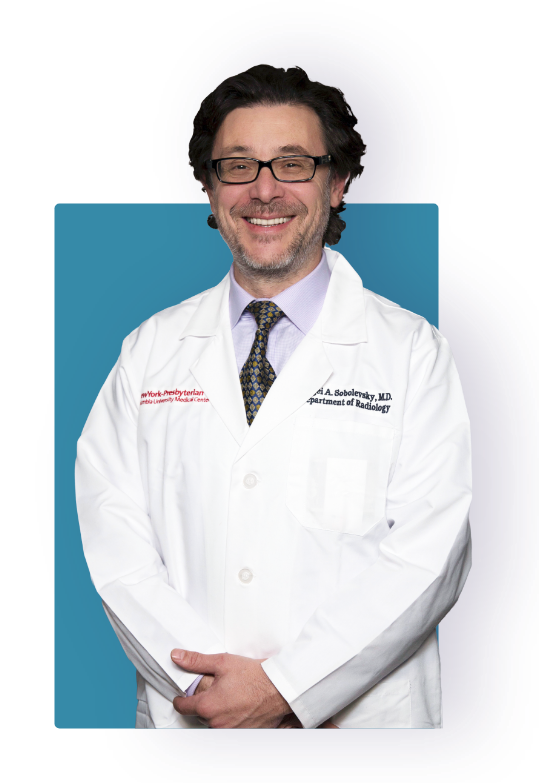While you may prefer to have the least invasive type of procedure when you suffer symptoms due to fibroids or adenomyosis, you sometimes need to have surgery to remove the painful growths from your uterus. But before you decide on surgery, you owe it to yourself to try all the other options available to decrease or eliminate the symptoms of your fibroids. To do that, call the endovascular specialist in Brooklyn at the Downtown Vein & Vascular Center. You may not need surgery after all.
What Are Myomectomy and Hysterectomy Procedures?
A myomectomy and hysterectomy are surgical options to treat uterine fibroids. A myomectomy removes just the fibroids, whereas hysterectomy removes your entire uterus, including any fibroids present. A myomectomy and hysterectomy relieve unwelcome adenomyosis or fibroid symptoms, such as:
- Fibroid pain
- Fibroid bleeding
- Frequent urination
- An enlarged uterus
- Severe cramps
- Heavier periods than normal
At the same time, the surgeries carry more risks than an alternative fibroid treatment option: a uterine fibroid embolization (UFE). In Brooklyn, reduce your risks drastically by trying alternatives to surgery, including myomectomy and hysterectomy. Dr. Sergei Sobolevsky at the Downtown Vein & Vascular Center is a diagnostic radiology specialist and customizes a fibroid treatment plan that works for you.
How Are These Surgeries Performed?
During a myomectomy, to gain access to your uterus, your doctor either makes a tiny laparoscopic incision in your abdomen or inserts the instruments through your vagina and cervix. Your doctor then surgically cuts out the targeted fibroids and only the fibroids. A hysteroscopic myomectomy is usually an outpatient procedure, so you can typically go home the same day.
A hysterectomy is a major abdominal surgery. During a hysterectomy, your doctor makes a large abdominal incision and then cuts out your uterus with or without other reproductive organs. Doctors may perform hysterectomies to treat other medical conditions, in addition to fibroids, including:
- Endometriosis
- Adenomyosis
- Certain types of cancer
★ ★ ★ ★ ★
Skilled and Experienced
Dr. Sobolevsky is a skilled and experienced Vein and Vascular Specialist. He was able to diagnose and treat my condition quickly and effectively. The procedure was painless and the results were impressive. I would highly recommend him for anyone seeking vein treatment.
What Are the Advantages and Disadvantages of a Myomectomy and Hysterectomy?
A myomectomy and hysterectomy treat disruptive fibroid symptoms. All fibroid treatments are designed to lessen or eliminate the negative impacts of fibroids, such as fibroid pain and changes to your period. The benefits of getting a myomectomy or a hysterectomy include:
- A myomectomy saves your uterus. A myomectomy only removes fibroids, making future pregnancy possible by preserving your uterus. Your fibroids are surgically removed in this procedure.
- A hysterectomy bars future fibroids. A hysterectomy eliminates the possibility of future fibroid growth by removing the uterus altogether. While it’s the only procedure that guarantees you won’t get any future fibroids, it comes at a drastic price for most women.
A hysterectomy is the only fibroid treatment that completely removes the uterus, therefore preventing future fibroids from developing. Major disadvantages to a myomectomy or a hysterectomy include:
- Need for general anesthesia. A myomectomy and hysterectomy require general anesthesia, so there’s always the risk of having an adverse reaction.
- Longer recovery time. Most women take longer to recover from a myomectomy and a hysterectomy, compared to a shorter recovery from uterine fibroid embolization.
- Changes in fertility status. Hysterectomies remove your entire uterus, rendering you infertile.
- Recurrence of fibroids after myomectomy. There is a significant risk of fibroid recurrence after a myomectomy compared to a minimal risk of recurrence after uterine fibroid embolization
If the prospect of future pregnancy is important to you, a hysterectomy probably isn’t the best fibroid treatment for you. Alternatively, when fibroid pain and bleeding are unbearable and you’re nearing menopause or don’t plan on any future pregnancies, a hysterectomy ensures you won’t suffer from fibroids ever again.
Are There Alternatives to Surgical Fibroid Treatment?
Approved fibroid treatment alternatives to myomectomy and hysterectomy are available, safe and effective. Many women who wish to avoid surgery forgo a myomectomy or hysterectomy in favor of less invasive care. Alternatives to surgical fibroid treatment include:
- Uterine fibroid embolization. During UFE, your doctor inserts a catheter into your blood vessel, then injects embolic agents that block blood flow to your uterus and the fibroids. Without enough blood, the fibroids shrink. UFE recovery takes up to two weeks. Most women report substantial benefits of UFE,including relief from their fibroid symptoms.
- If your fibroid symptoms include changes to your menstrual cycle, such as severe menstrual cramps and heavy periods, birth control medication stabilizes your period and reduces these symptoms. Additionally, pain medication helps you manage pelvic and fibroid pain.
Contact the Downtown Vein & Vascular Center, where you receive comprehensive fibroid evaluation and where you can formulate an appropriate treatment strategy. Your adenomyosis and fibroid specialist at the facility provides counseling and a thorough examination of your current symptoms, your family history and your personal goals before making any recommendations.

I am Dr. Sergei Sobolevsky, a leading specialist in endovascular medicine. Having performed over 25,000 procedures throughout my career, I bring decades of experience in vascular and interventional radiology to my practice. I obtained my Doctor of Medicine (MD) degree from the University of Colorado School of Medicine in 1997 and completed my specialty clinical training in vascular and interventional radiology at Harvard University.
My dedication to excellence in patient care has been recognized through accolades such as being named a Castle Connolly Top Doctor and inclusion in the Top Doctors New York Metro Area lists for 2020, 2021, 2022, and 2023. With licenses in multiple states, I have also shared my expertise through presentations at various institutions in the US and abroad.
More About Dr. SobolevskyDowntown Vein Treatment Center
480 Court Street, Ste 101
Brooklyn, NY 11231
(718) 787-5559


